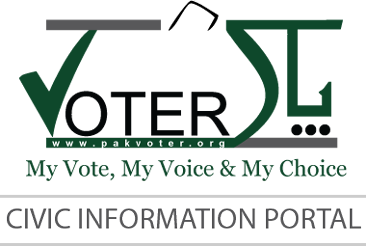Pakistan, as you well know is a Parliamentary democracy with a federal government and four provincial legislatures. In other words, there’s a federal government at the center (i.e. Islamabad) that takes care of national affairs on the whole and then there are four provincial governments that are entrusted with the welfare of the provinces. Have you ever thought why we don’t have Presidential system of governance or any other form and why this particular model was adopted to govern Pakistan? Well, in today’s blog we will discuss precisely that and specifically talk about why “federalism” is important for the country.
Let’s first establish a definition for “federalism”. Simply – but rather academically – put, “federalism refers to a system of government in which sovereignty is constitutionally divided between a central governing authority and constituent political units (such as states or provinces). Need for further elaboration there? No? Great, let’s move on then!
Before talking about why federalism is important for Pakistan, let’s first take a little walk down memory lane and trace its history. Pakistan gained the status of an independent country in 1947, however it took us nine years after independence to present the first institution in the Constituent Assembly. In 1954 the assembly was dissolved by the Governor General without any constitutional mandate leading to instability in the political arrangement. The constitutions of 1956 and 1962 were abrogated (i.e. in other words “scrapped”!). in all honesty, the 1962 version of the constitution deserved abrogation because it broke the democratic rules of one-man, one-voter turnout as well as adult franchise and developed a flawed federal structure under which the concept of provinces was finished and the entire country fell under the “One Unit” system! Needless to say, the over centralization of the Pakistani federation resulted in the largest province seceding from the federation. Later, sanity prevailed and the Provinces were revived and One Unit was abolished, however provinces were denied their political, economic and cultural rights resulting in distrust between the federation and the provinces on the one hand and amongst the provinces on the other.
It was in this backdrop that the 1973 Constitution came into existence with consensus amongst all political forces within parliament and the provinces. The constitution promised a federal parliamentary system with provincial autonomy in which fundamental rights and the independence of the judiciary would be ensured. Unfortunately the Constitution of 1973 was not implemented in letter and spirit and military dictatorships led to further centralization.
Thankfully, this imbalance in the federal structure was corrected through the eighteenth constitutional amendment in 2010. Pakistan is now a participatory federation with joint ownership of natural resources. It is quite a paradox that with the exception of the Constitution of 1962, all constitutional arrangements including the Government of India Act, 1935, Constitution of 1956 and the Constitution of 1973 are essentially federal in character though in practice a centralized form of government prevailed in the country. Repeated derailment of the democratic and constitutional process heightened tensions on issues of economic management, provincial autonomy and discretionary powers, particularly those vested in the office of the President of Pakistan. The Eighteenth Amendment has tried to address these issues keeping in view Pakistan’s historical context, its polity and its objective conditions. In other words the Eighteenth Amendment, throws up a Pakistani federalism that learns from the experiences of others but is rooted in the Pakistani reality. The Amendment provides ownership and participation in policy and management of natural resources, increased the legislative powers of the provincial assemblies including those on taxation. In termination, civil society organizations, journalists, politicos and other interest groups have a part to play in managing differences and creating a home grown federalism that is rooted in local polity and ensures unity in variety.
In a nutshell, it took Pakistan 67 years to devise the near perfect formula for federalism but now that it’s finally in place, it is the responsibility of each and every citizen to ensure that it prevails.


